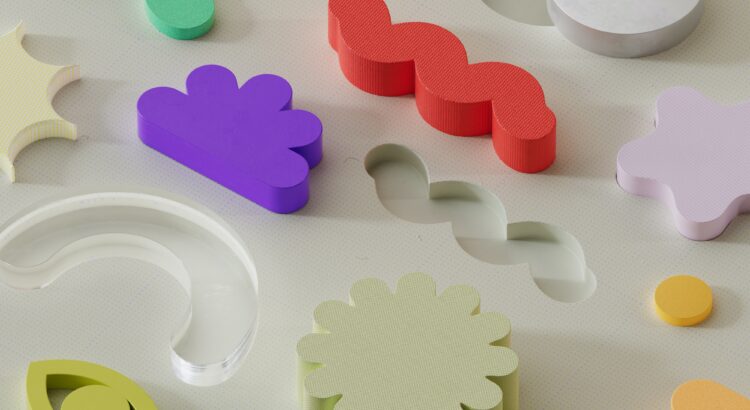3D puzzles are three-dimensional puzzles that come in different shapes and sizes. The puzzles range from jigsaws to model kits, as well as brain teasers. Such puzzles have various physical and mental health benefits.
3D puzzles can improve cognitive skills such as memory and problem-solving, improve focus and concentration, while also reducing stress levels. The puzzles can also improve hand-eye coordination, fine motor skills, and promote physical activity.
Read on to explore the various types of 3D puzzles and their benefits.
Mental Benefits of 3D Puzzles
3D puzzles can help improve cognitive skills and reduce stress levels. Below are the benefits of playing these puzzles.
a) Improve cognitive skills
Working on a 3D puzzle requires a considerable amount of mental effort and concentration. Engaging in these two can help improve cognitive skills.
Completing a 3D puzzle involves remembering the shapes and colors of the pieces and where they fit together. Therefore, it makes sense that regular practice with 3D puzzles can enhance memory skills.
You also need problem-solving skills to figure out how the pieces fit together in 3D puzzles to create the final product. This process of figuring out the solution can help develop problem-solving skills, which can be useful in other areas of life.
b) Reduce stress
3D puzzles can be an excellent way to reduce stress levels and promote relaxation. Working on a 3D puzzle can be calming and relaxing. The focus required to complete the puzzle can help take your mind off of other daily stressors.
Solving a 3D puzzle requires focus and concentration. The activity helps to improve attention span and concentration levels, which can increase productivity and overall mental clarity.
Physical Benefits of 3D puzzles
Apart from the mental benefits, there are several physical benefits of playing 3D puzzles. These include:
a) Improve hand-eye coordination
Working on a 3D puzzle involves using your hands and eyes together to complete the task. This can help improve hand-eye coordination, which is useful when engaging in various physical activities.
b) Enhance fine motor skills
Completing a 3D puzzle requires precise movements and manipulation of small parts. Regular practice with 3D puzzles can help enhance fine motor skills. The skills can be useful in everyday tasks such as writing and typing.
c) Develop spatial awareness
Working on a 3D puzzle requires understanding the spatial relationship between the different pieces and how they fit together. This can help develop spatial awareness, which is useful in sports, driving, and other activities.
d) Promote physical activity
Completing a 3D puzzle can involve standing, walking, and moving around to find the right piece or angle. This can help promote physical activity and break up long periods of sitting. Studies have shown that sitting for extended periods of time has negative health effects.
Types of 3D Puzzles
There are several types of 3D puzzles you can solve. Each type offers unique benefits and challenges. Some common types include:
a) Cube puzzles
Cube puzzles, also known as Rubik’s cubes, are a type of brain teaser that involves twisting and turning the cube to align the colors on each side. These puzzles are great for improving spatial awareness and problem-solving skills.
b) Mechanical puzzles
Mechanical puzzles involve assembling and manipulating gears, levers, and other mechanical parts to create a functioning machine or device. The puzzles are recommended for improving problem-solving skills and enhancing spatial awareness.
c) Architecture puzzles
Architecture puzzles involve assembling miniature models of famous buildings or landmarks. Such puzzles can improve spatial awareness and attention to detail.
Benefits of Different types of 3D puzzles
3D puzzles come in various types, and each one offers unique benefits for mental and physical fitness. Jigsaw puzzles, for example, are known to improve memory and problem-solving skills. They also provide a relaxing activity that can reduce stress levels. Model kits, on the other hand, require attention to detail and improve fine motor skills. They can also be a creative outlet and promote relaxation. Brain teasers are excellent for improving critical thinking and problem-solving skills. They can also serve as a fun way to pass the time and promote mental stimulation.
Cube puzzles can improve spatial awareness and problem-solving skills, and they can be a fun way to challenge oneself and promote mental agility. Mechanical puzzles can enhance problem-solving skills and spatial awareness, and they can also serve as a fun way to learn about mechanics and engineering.
Conclusion
3D puzzles offer several benefits for both mental and physical fitness. By engaging in regular practice with 3D puzzles, you can improve cognitive skills, reduce stress levels, enhance physical coordination, and promote physical activity.
Whether you prefer jigsaw puzzles, model kits, brain teasers, or other types of 3D puzzles, there is something for everyone to enjoy. So next time you’re looking for a fun and beneficial activity, consider trying a 3D puzzle.
